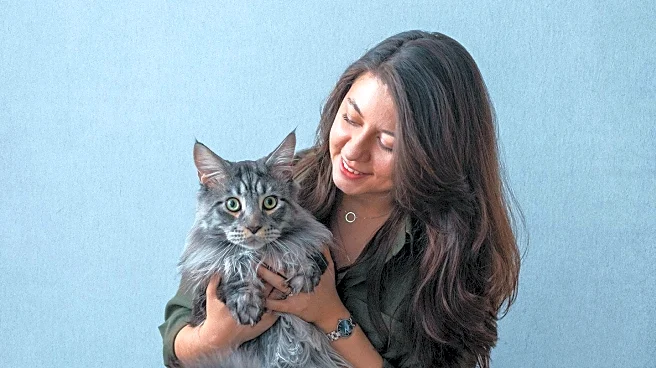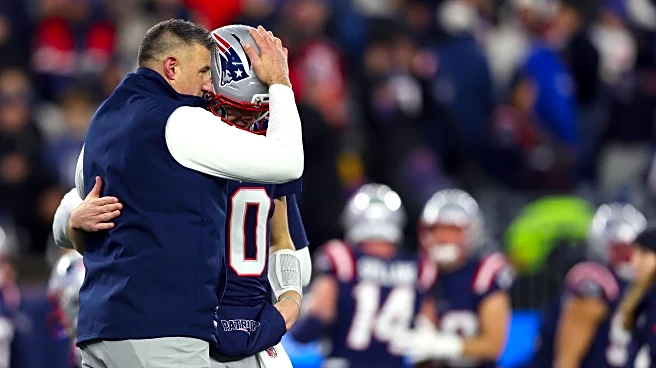What's Happening?
Veterinarians in Maine are emphasizing the importance of vaccinating pets as cases of parvovirus, a highly contagious and often deadly virus, rise in the state. The virus has been reported in several counties, including Androscoggin, Penobscot, and Oxford.
Experts recommend avoiding public places where pets gather if parvovirus cases are reported nearby. Vaccination is highlighted as the best protection against the virus. In Maine, rabies vaccination is mandatory for dogs and cats over three months old, and strongly recommended for other animals like ferrets and horses. Core vaccines for dogs include those for rabies, leptospirosis, and a combination vaccine for several viral infections. For cats, core vaccines protect against diseases such as feline leukemia and panleukopenia. Vaccination clinics are available at low cost across Maine, making it accessible for pet owners.
Why It's Important?
The rise in parvovirus cases poses a significant threat to pet health in Maine, making vaccination crucial. Vaccines not only protect individual pets but also help prevent the spread of diseases to other animals and humans. Rabies, for instance, can be transmitted to humans through bites or scratches, highlighting the public health importance of pet vaccination. The cost-effectiveness of vaccines is another critical factor, as treating diseases like parvovirus can be expensive. By ensuring pets are vaccinated, owners can avoid high veterinary costs and contribute to broader public health safety. The availability of low-cost vaccination clinics further supports public health efforts by making vaccines accessible to a wider population.
What's Next?
As the situation develops, pet owners in Maine are likely to see increased efforts from local shelters and veterinary associations to promote vaccination. Public awareness campaigns may be intensified to educate pet owners about the risks of parvovirus and the benefits of vaccination. Additionally, there may be more vaccination clinics organized to accommodate the growing demand. Veterinary associations might also advocate for policy changes to ensure more comprehensive vaccination coverage across the state. Monitoring of parvovirus cases will continue, and responses will be adjusted based on the prevalence of the virus in different regions.
Beyond the Headlines
The emphasis on pet vaccination in Maine reflects broader public health strategies that prioritize prevention over treatment. This approach not only reduces the burden on veterinary services but also aligns with efforts to control zoonotic diseases that can affect humans. The situation underscores the interconnectedness of animal and human health, a concept central to the One Health initiative. As awareness grows, there may be a cultural shift towards more responsible pet ownership, with vaccination becoming a standard practice. This could lead to long-term improvements in animal welfare and public health outcomes.















